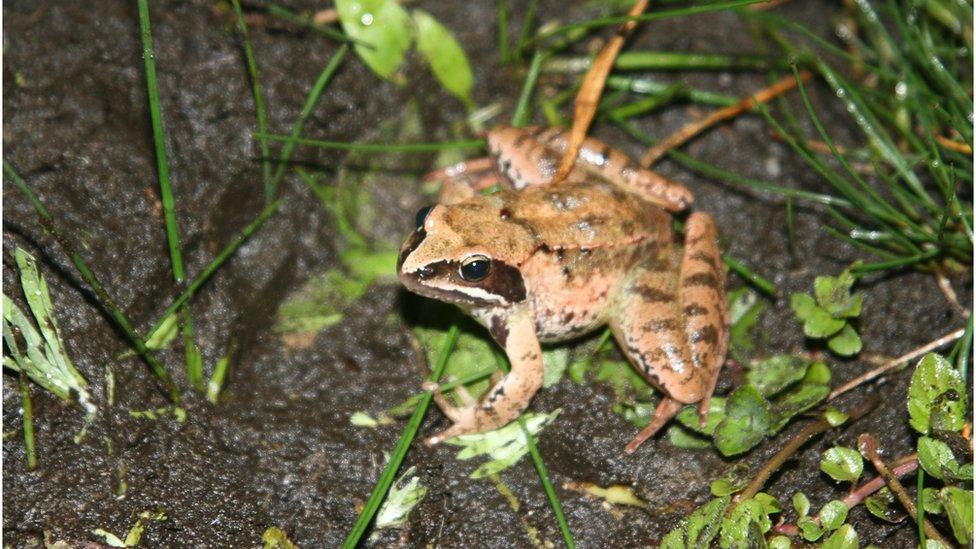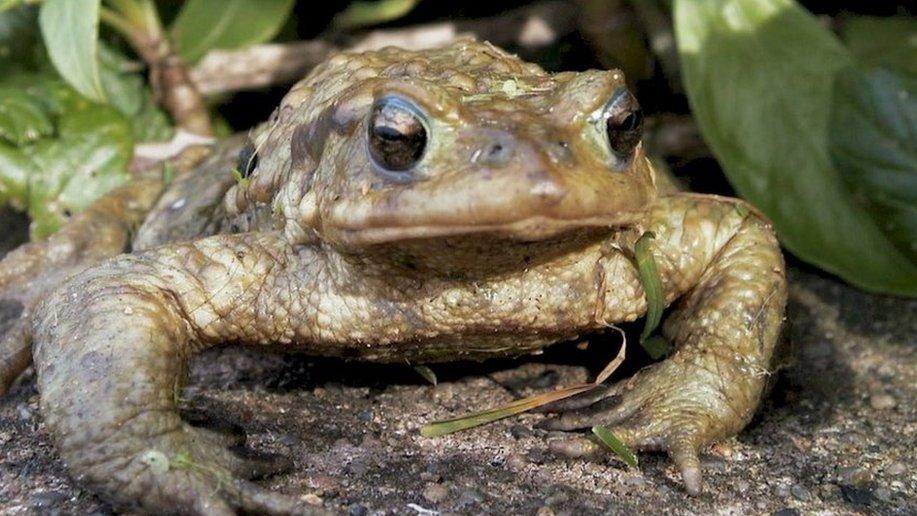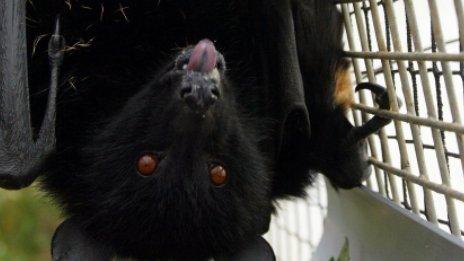Agile frog population rises following conservation efforts
- Published

Jersey is the only home to the agile frog in the British Isles
The breeding female population of a frog species native to Jersey has increased tenfold since the 1990s, following a conservation project.
The agile frog campaign, which saw 10 breeding females rise to 105, involved habitat protection, captive breeding of the frogs and their release.
The International Union for Conservation of Nature has commended the campaign.
Jersey is home to the only agile frog population in the British Isles.
The hind legs of an agile frog are proportionately longer than those of other European frogs, allowing it to jump up to 2m (7ft) from standing.
The frog can grow up to 90mm (3.5in), and is generally quite slender with a fairly pointed snout.
Jersey's senior natural environment officer, Tim Liddiard, said due to predators and disease, agile frogs had a poor survival rate.
He said: "The strategy for frogs and toads is to lay a lot of eggs as one spawn might contain 600 eggs, but only one or two will go on to breed.
"If 3,000 tadpoles are released into a pond the likelihood is of the few who make it out of the pond, fewer still make it back to breed."

Reasons for the population decline
Habitat loss due to development
Pollution of groundwater
Water shortages and the loss of ponds due to abstraction for domestic and agricultural purposes
Predator pressure from cats, birds and ferrets
Source: States of Jersey

Over a number of years a number of agencies including the environment department, Durrell Wildlife Trust and the University of Kent have been working to boost the population.
Mr Liddiard said inclusion in the publication would help future species-recovery projects elsewhere in the world to learn from Jersey.
He said even with this work "It's a really difficult life for frogs and toads".
The project has led to an increase in the core population at L'Ouaisne pond and the successful introduction of the species in new areas of Jersey, increasing its chance of survival in the future.
- Published9 October 2014

- Published17 November 2011
